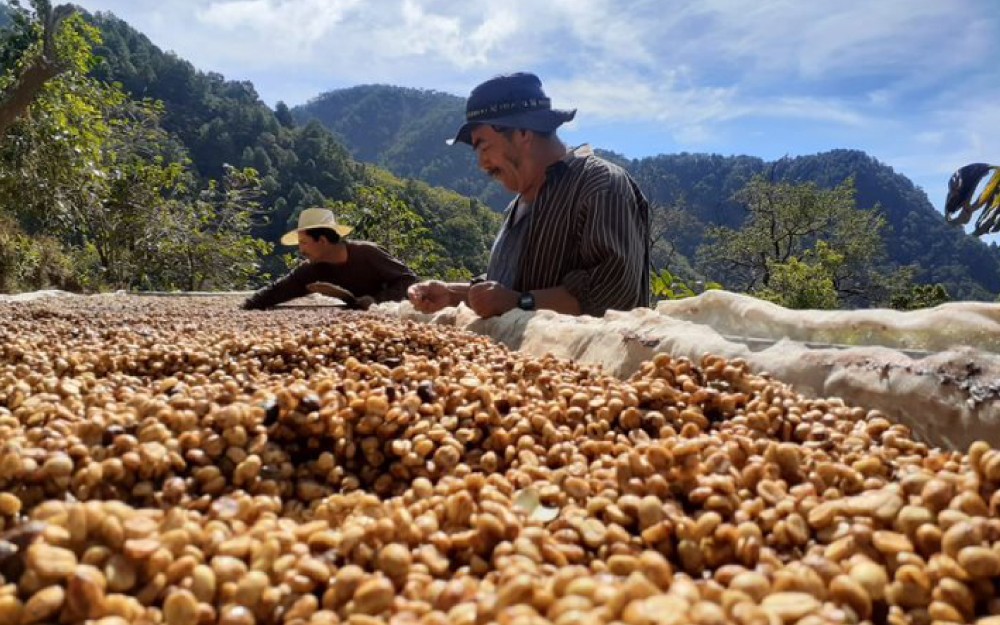
El Salvador coffee was once very popular and at one point El Salvador used to be the fourth largest coffee exporter in the world. The coffee trade was in decline for many years after the civil war. However, now it is starting to improve.
Coffee from El Salvador is generally quite sweet with mild acidity and a full body. Nearly two-thirds of this country’s coffee is of the Bourbon variety. There are about 20,000 growers in the country, 95% of whom have a small farm of no more than 20 hectares at 500-1200 m above sea level.
Coffee in El Salvador traditionally grows largely in the shade, so they grow slowly, which in turn produces a very solid hard bean. Because coffee thrives in the shade, coffee plantations in El Salvador played a major role in fighting deforestation and loss of wildlife habitats. If these trees were cut down, the country would lose almost all of its natural forests and its many coffee plantations. And now that the trees are so important in coffee cultivation, they are not cut down. But at least as important for now: it is a tasty, full-bodied coffee with chocolate tones and a little acidity.
Coffee production in El Salvador began around 1870 and became one of the country’s largest exports. Some suggest it was responsible for up to 50% of the country’s income until the 1980s, when internal conflicts caused the drop in production. The coffee growers owned much of the land in El Salvador and had strong influence over the government. Many even viewed the coffee industry as an invisible government running the country.

The internal conflicts of the 1980s led to a dramatic decline in coffee production for many years, and the industry struggled to regain market share, especially as cheaper beans were produced in other parts of the world and prices fell. Currently, El Salvador coffee is part of the Free Trade Organization. It partners with the United States Agency for International Development (USAID) to raise wages by producing beans for larger companies.
Coffee beans from El Salvador tend to have a full-bodied flavor without much of the acidity you might find in other brands, giving the coffee an almost honey-like sweetness. It is a favorite bean for mixing because it mixes well with other varieties to help them get a softer and smoother flavor. However, depending on the region of El Salvador where the trees grow, you may find a few different species, each with unique characteristics.
Bourbon is a natural variety of beans found in the high mountains of El Salvador. It is considered one of the best varieties you can find. This is also responsible for El Salvador’s Pacas variety, another high-end coffee. It has a smooth and pleasant taste that many people enjoy.
Pacamara is a hybrid bean that farmers created to have a larger bean, and it started around 1949. The native Pacas and Arabian Maragojipe are combined to create a pleasant, high-quality, mild flavor similar to Bourbon, but with a deeper taste.
Geisha Coffee is a new variety of bean introduced to El Salvador from Ethiopia, so it may be a few more years before you see one for sale. These beans are known for their distinctive floral and sweet taste, which is why they fetch high prices in other parts of the world. These beans can add honey, jasmine and black tea flavors to the coffee.







